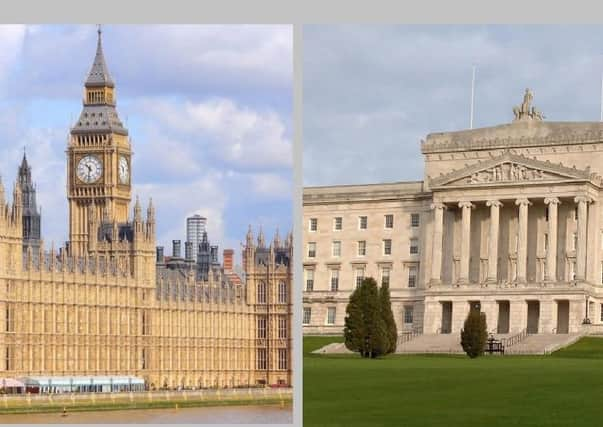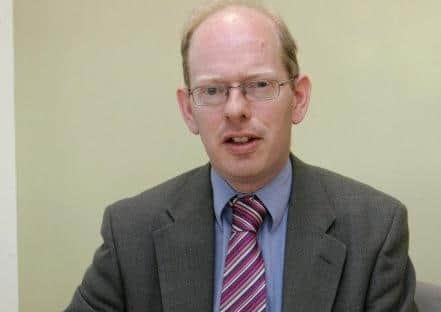Economist: Stormont might be more careful with its handling of money if it had to raise the funds through taxation


The news that Stormont’s finance minister is to introduce a Fiscal Commission will probably not be accompanied by widespread joy.
Nevertheless, there is a strong case that one is needed.
After all, over the last 12 or so years both Scotland and Wales have had several reviews of the fiscal powers of their devolved governments.
Advertisement
Hide AdAdvertisement
Hide Ad

Hitherto, consideration in Northern Ireland has been very piecemeal. First, the tax on long haul air flights was devolved and removed and then, in 2016, Westminster legislated to give Stormont an ability, still unused, to set a Corporation Tax rate different from the UK average. And that, so far, has been it. There has been no consideration of the big picture.
In fact, the Stormont executive remains very dependent on the block grant it receives from the London government.
This implies that in practice it may sometimes act more like a spending agency than a regional government which has a fair degree of flexibility about its spending decisions. The relative absence of revenue funding streams which it controls may also imply that all the Northern Ireland executive parties continue to act as if they are in opposition. Policy debates often end up with pleas for even more money to come from London.
In theory, at least, if decisions about spending extra cash had to be accompanied by a decision as to how to raise those funds that might encourage more careful policy making.
Advertisement
Hide AdAdvertisement
Hide AdThe independent Fiscal Commission will be considering some of the options that could raise extra revenue for the executive. Equally, it is also likely to consider options where a particular tax might be reduced in order to promote some policy objective such as the competitiveness of the economy, environmental protection or more healthy lifestyles.
The agenda relating to fiscal devolution is challenging. There is the obvious point that almost no tax increase is ever a politically popular move. It is a mistake to assume that if Stormont wants to raise a lot of extra revenue all it has to do is tax the “super rich” and leave the rest of us alone.
If, for example, the intention was to raise a significant extra amount through Income Tax it is probable this could only be achieved by amongst other things increasing the 20% or Basic Rate [Note 1 below]. If, however, certain taxes are reduced then the “cost” to Stormont is likely to be a reduction in its Block Grant from the London Treasury [Note 2].
So, whatever the Fiscal Commission recommends and whatever the Executive does decide to implement expect challenging times ahead but it probably is realistic and appropriate that Stormont takes on greater self-responsibility in fiscal terms.
Advertisement
Hide AdAdvertisement
Hide Ad• Dr Esmond Birnie is senior economist at Ulster University Business School and Senior Research Fellow at Pivotal NI Policy Forum
• Note 1. This is because the number of 40% and 45% Income Tax payers in NI is relatively small. There is also the danger that if the top rate increased dramatically some people would shift their residence to England.
• Note 2. Two reasons for such Block Grant reductions. First, the NI Brexit Protocol implies we are still subject to EU state aid rules and regulations set by the European Court of Justice (the Azores Judgement of the ECJ prescribed such reductions). Second, even without the continuation of EU law in NI, it is probable HM Treasury would not want to give NI a free ride in fiscal terms.
——— ———
A message from the Editor:
Advertisement
Hide AdAdvertisement
Hide AdThank you for reading this story on our website. While I have your attention, I also have an important request to make of you.
With the coronavirus lockdown having a major impact on many of our advertisers — and consequently the revenue we receive — we are more reliant than ever on you taking out a digital subscription.
Subscribe to newsletter.co.uk and enjoy unlimited access to the best Northern Ireland and UK news and information online and on our app. With a digital subscription, you can read more than 5 articles, see fewer ads, enjoy faster load times, and get access to exclusive newsletters and content. Visit https://www.newsletter.co.uk/subscriptions now to sign up.
Our journalism costs money and we rely on advertising, print and digital revenues to help to support them. By supporting us, we are able to support you in providing trusted, fact-checked content for this website.
Alistair Bushe
Editor